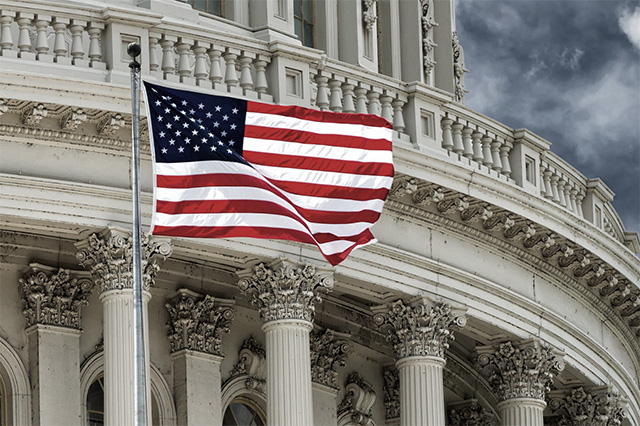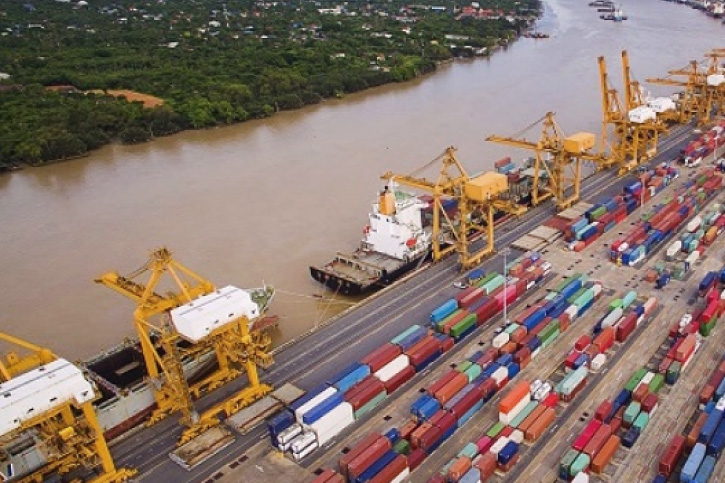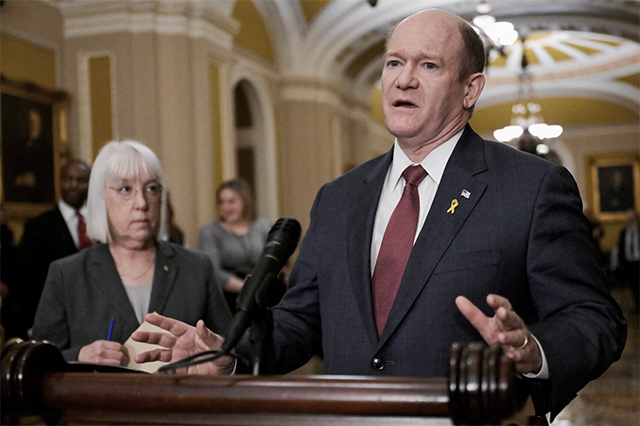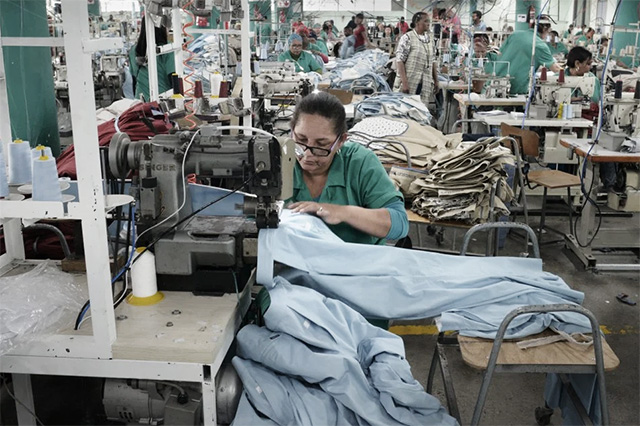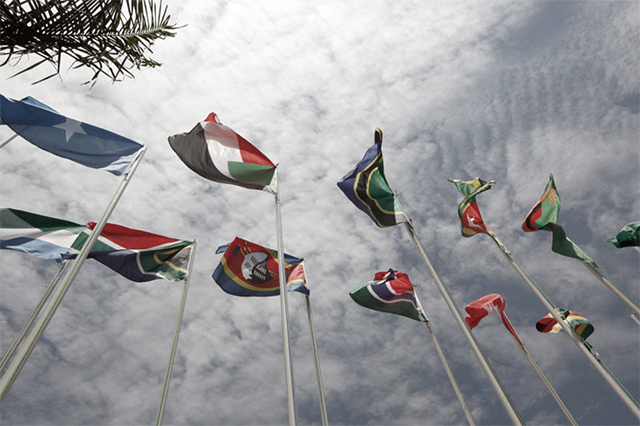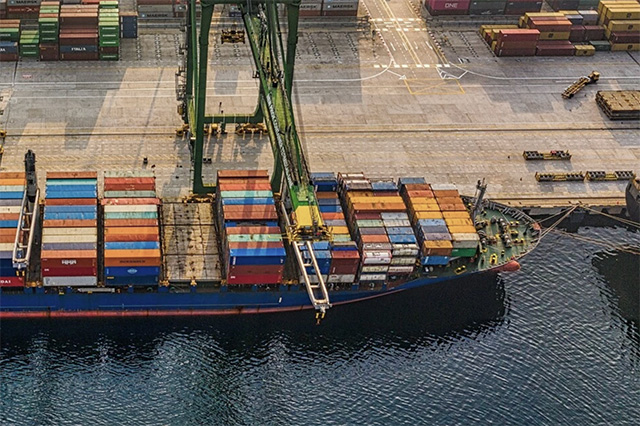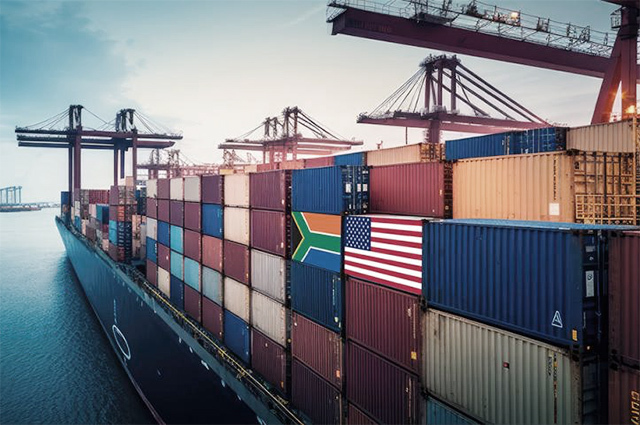Pressure mounts to renew AGOA
The African Growth and Opportunity Act, or AOGA, doesn’t expire until Sept. 30, but there’s mounting pressure to extend it immediately since every passing day without renewal brings more ambiguity to companies’ ability to plan ahead.
“If it gets passed at the last minute, it causes all kinds of disruptions and uncertainties for buyers and sellers. And so, just the uncertainty alone is damaging,” said Jennifer Cooke, director of the Center for Strategic and International Studies’ Africa, in an interview with AFKInsider.
The business community wants AGOA renewed sooner rather than later, said Scott Eisner, vice president for African Affairs at the U.S. Chamber of Commerce. “We think there’s a strong appetite on the Hill for the same thing,” he told AFKInsider.
Waiting until the 11th hour to renew AGOA will result in lost jobs, closed factories, and deferred investment, “all of which undermine our goal for a stronger U.S.-Africa economic relationship,” U.S. Trade Representative Michael Froman said when the U.S. signed the U.S.-EAC Cooperation Agreement to ramp-up trade with the five-nation East African Community on Feb. 26.
One U.S. business sector in particular that is clamoring for AGOA’s prompt renewal is a cohort of apparel, footwear and retail companies that rely on exports from Africa.
“Companies are already planning for production that will enter the U.S. well after the expiration date,” said Stephen Lamar, executive vice president of the American Apparel & Footwear Association, in an interview with AFKInsider. “So when you look at the question and say ‘Is there an ideal time for renewal?’ the ideal time would have been a year ago.”
President Bill Clinton launched AGOA in May 2000 for a 15-year period to bolster two-way trade and investment between the U.S. and eligible African countries.
According to the Brookings Institute’s Foresight Africa: Top Priorities for the Continent in 2015 report, “As the cornerstone of the U.S.-African commercial relationship, AGOA provides duty-free access to the U.S. market for 6,400 products from 40 countries.” Given the high duty rates some industries pay, this makes AGOA important.
Jobs at stake
The U.S. trade office said exports to Africa support more than 120,000 U.S. jobs. A 2013 AGOA Ambassadors Working Group study found that AGOA generated some 350,000 direct jobs and 1 million indirect jobs in Africa.
Supporters say without AGOA’s long-term predictability, it will be difficult to grow, let alone sustain, such employment numbers.
“At the end of the day, if you can create a job in Africa for a new worker in some of these micro-countries, the median wages rise and over time there’ll be a greater demand on U.S. goods and services,” Eisner said. “And so, while it’s not the implied statement of the law, it does provide long-term value to the U.S. private sector vis-à-vis exports back to Africa at a later date.”
This is why the American Apparel & Footwear Association has been hounding Washington for speedy renewal of not only AGOA, but other expired trade programs as well.
AGOA’s worth
Of the $39-billion worth of total imports from sub-Saharan Africa in 2013, 70 percent, or $26.8 billion, arrived under AGOA, up from $20.3 billion in 2011 and almost four times the $7.6 billion during AGOA’s first full-year in 2001. But imports to the U.S. under AGOA declined over 50 percent in 2014, chiefly due to lower oil exports from the region.
Meanwhile, non-oil AGOA trade has more than tripled since 2001. According to the U.S. Department of Commerce, the biggest non-petroleum export winner has been apparel, which grew more than 250 percent from $355 million in 2001 to more than $907 million in 2013, though down from its all-time peak of $1.13 billion in 2008 as East Asian manufacturers gained broader U.S. access.
Just how much apparel does Africa export to U.S.?
Kenya, AGOA’s biggest textile partner, increased exports to the U.S. by nearly a third in 2014, and Botswana, the seventh-largest textile partner, saw AGOA exports increase 53 percent to $8.5 million, with textile and apparel exports accounting for 87 percent.
The U.S. Department of Commerce also notes that in 2014, the U.S. imported 250-million square-meter equivalents of apparel from Africa valued at $1 billion. The U.S. also imported 1.7 million pairs of shoes worth $21.3 million, with about 93 percent coming from Ethiopia. But by volume, AGOA footwear imports equaled about .07 percent of all footwear imports into the U.S. and African apparel imports represented about 1 percent, while China accounted for 38.9 percent of total U.S. textile and apparel imports in 2014.
The fact is, only a handful of the AGOA-eligible countries take advantage of AGOA’s opportunities.
“Just because there’s only a few that utilize it to its full benefits doesn’t mean that there still isn’t value because it does open up the trade dialogue amongst U.S. and African countries,” Eisner said.
“One of the ongoing things that occurs in the sourcing world is companies are constantly looking to develop new partners or to diversify from countries where maybe they’ve got too much concentration,” Lamar said. “And different African countries are routinely mentioned as places where people would like to either do production in the first place where they don’t have it, or put in more production.”
Angola, Nigeria, South Africa, Chad and Gabon were the top five AGOA beneficiary countries in 2014.
For the U.S. apparel industry, the top 10 clothing exporters in 2014 were Kenya, Lesotho, Mauritius, Tanzania, Swaziland, Ethiopia, Botswana, Ghana, Malawi and South Africa.
Since then, Swaziland was dropped from AGOA on Jan. 1, illustrating yet another ongoing problem.
The Swinging Door
Despite favorable trade preferences, there are still unanticipated risks of being overly reliant on AGOA-eligible countries since that list of countries is in no way set in stone.
Each year, President Barack Obama is required to evaluate which African countries live up to AGOA’s standards based on progress made meeting certain criteria that includes establishing policies favorable to a market-based economy, rule of law, poverty reduction, worker rights protections and fighting corruption.
Countries that don’t meet the criteria are unceremoniously dropped until they comply.
“Ideally, you pick a partner that’s going to be stable enough that they’re not going to be coming on and off the list,” Lamar said. “Sometimes you can’t help that if there’s a coup, which is what happened in Madagascar.”
“In general, the Madagascar thing was due to the coup and you have Swaziland for human rights issues,” Eisner said.
Madagascar, eligible for AGOA at its inception, was dropped in Dec. 2009 because of the March 2009 coup. Apparel exports to the U.S. declined 71 percent in 2010 and another 35 percent in 2011, according to the American Apparel & Footwear Association.
Madagascar was devastated. At the time, more than a quarter of the country’s jobs were “dependent on AGOA exports, which, in 2008, were valued at $279 million,” according to a 2012 Congressional Research Service report. Many textile factories closed, and by 2011 apparel exports to the U.S. plunged to $40 million while total exports to the U.S. fell from $324 million to $87 million.
After a democratic election and a new president was sworn in, Madagascar’s AGOA status was reinstated in June 2014 – just in time for the country to be invited to the August U.S.-Africa Leaders Summit in Washington.
But Madagascar’s on-again, off-again status is not an isolated incident. In fact, since President Clinton implemented AGOA in 2000 and designated a list of 34 eligible countries, that list has seen a number of countries rotate on and off – and on again.
- Jan. 18, 2001, Swaziland was designated the 35th AGOA-eligible country, but was de-listed Jan. 1, 2015.
- May 16, 2002, Côte d’Ivoire was designated the 36th AGOA country, but was de-listed Jan. 1, 2005, then reinstated in October 2011.
- Jan. 1, 2003, The Gambia and Democratic Republic of Congo were designated as the 37th and 38th AGOA countries. The DRC was dropped Jan.1, 2011, and Gambia was dropped Dec. 26, 2014. In a statement, the Gambia government said: “The Gambia has never benefited from the act in the first place.”
- Jan. 1, 2004, the Central African Republic and Eritrea were removed.
- Jan. 1, 2006, Mauritania was dropped then reinstated on Dec. 23, 2009.
- Dec. 23, 2009, Guinea, Madagascar and Niger were removed, then Guinea and Niger were reinstated in October 2011, and Madagascar was reinstated June 26, 2014.
- On Dec. 20, 2012, South Sudan became eligible (and was then dropped Dec. 26, 2014) while Mali was dropped (then reinstated Jan. 1, 2014), and Guinea Bissau was dropped (and reinstated Dec. 26, 2014).
“One of the things this does – when you’ve got some countries on and some countries off – is you might disrupt regional supply chains that exist,” Lamar said.
Today, the number of AGOA-eligible countries is hovering around 39 out of 54.
“One of the reasons we want all of the countries to be included – and for it to be included for the longest possible time – is because we want to have the most stability and most predictability,” Lamar said.
While the Obama administration’s 2016 budget does call for a 15-year extension of AGOA, the White House also wants to “strengthen the legislation” by “updating the AGOA eligibility criteria and review process,” as well as expand agricultural export opportunities.
A longer-term program would provide quantifiable incentives that allow both the trade and investment to occur, Lamar said, and that would attract investments in things like textile equipment, where the return on investment is very long.
Is AGOA still relevant?
Since AGOA was enacted in 2000, “Africa rising” has been the mantra for its steady economic growth.
In 2014, Nigeria surpassed South Africa as sub-Saharan Africa’s largest economy and the World Bank predicts the region’s economy will grow 4.6 percent in 2015 and “rise gradually to 5.1 percent by 2017.”
Africa is now home to six of the world’s 10 fastest-growing countries, and AGOA’s detractors argue that the continent’s economic upswing means it no longer needs the special treatment that AGOA affords.
Lamar with the the American Apparel & Footwear Association said, “We would disagree that there’s no longer a need (for AGOA.) AOGA has been a tremendously successful program for our industry, as well as an anchor of U.S.-Africa trade policy. What companies tell us is that it’s a growing part of their sourcing dynamics.”
Some African markets are moving more quickly than others, but there are plenty of countries that still can benefit from AGOA and its capacity-building incentives that open up new markets and new endeavors by Africans, said Eisner with the U.S. Chamber of Commerce.
A seamless renewal
Although both Congress and the White House want a “seamless” renewal, Lamar said Jan. 29 in an opinion piece in SourcingJournalOnline that “recent evidence shows that Congressional intentions do not always translate into Congressional action.”
Lamar cited delayed action on other popular trade programs. The Generalized System of Preferences, or GSP expired 18 months ago, forcing World Trade Organization members to treat other WTO members equally when it came to tariffs and ending most favored nation status. The result? Companies got stuck with “paying more than $1 billion in duties on goods that were supposed to be duty free,” Lamar said.
Then there’s the Nicaragua Tariff Preference Level, which expired in December, and the Miscellaneous Tariff Bill, which allowed companies duty reductions on goods not manufactured in the U.S. but expired three years ago.
Congressional dawdling may not continue too much longer with AGOA’s renewal.
“There’s a number of trade measures that are included in AOGA that are expected to begin to advance to the legislature in the next couple of weeks,” Lamar said. “And the fact that it’s going in that group of bills I think indicates they don’t want to see it wait until the last minute.”
“I think at this point and time, it’s just a question of process,” Eisner said.
The burning question now is just how much tweaking the 15-year-old AGOA requires to meet the economic paradigms of doing business in sub-Saharan Africa beyond 2015.
Cooke with the Center for Strategic and International Studies said there have been debates on whether the U.S. should “reauthorize AGOA largely as is, or are there changes that need to be made given the changing context within Africa,” such as “graduating” more economically advanced countries like South Africa off AGOA.
“So do you pass it clean, or laden it with changes to language on a number of different things?” Cooke asked.
Many are adamant that AGOA’s renewal should come first, and soon, after which Congress can quibble over modifications.
“Everything that members of Congress are saying publicly indicates that they’re sensitive to those concerns,” says Lamar.
Meanwhile, for trading partners on both sides of the Atlantic, the clock is ticking.



